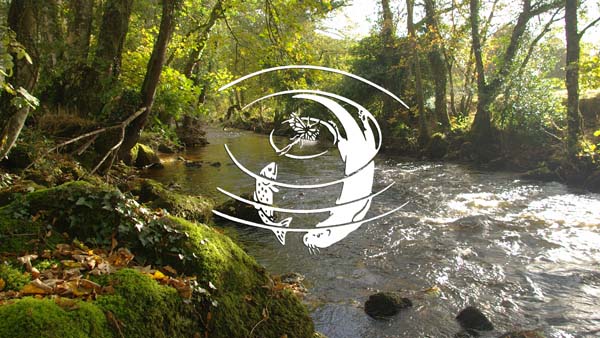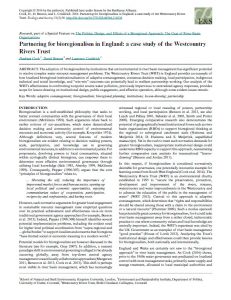If you are interested in the history of the Westcountry Rivers Trust give this paper published in Ecology & Society a read! Written in conjunction with the University of Exeter and Kingston University, London; this paper looks at WRT’s role in bioregionalism. To view the paper, click on the image below.
The adoption of bioregionalism by institutions that are instrumental in river basin management has significant potential to resolve complex water resource management problems. The Westcountry Rivers Trust (WRT) in England provides an example of how localized bioregional institutionalization of adaptive comanagement, consensus decision making, local participation, indigenous technical and social knowledge, and “win-win” outcomes can potentially lead to resilient partnership working. Our analysis of the WRT’s effectiveness in confronting nonpoint source water pollution, previously impervious to centralized agency responses, provides scope for lesson-drawing on institutional design, public engagement, and effective operation, although some evident issues remain.
References
Cook, H., D. Benson, and L. Couldrick. 2016. Partnering for bioregionalism in England: a case study of the Westcountry Rivers Trust. Ecology and Society 21(2):38.
Share Tweet

